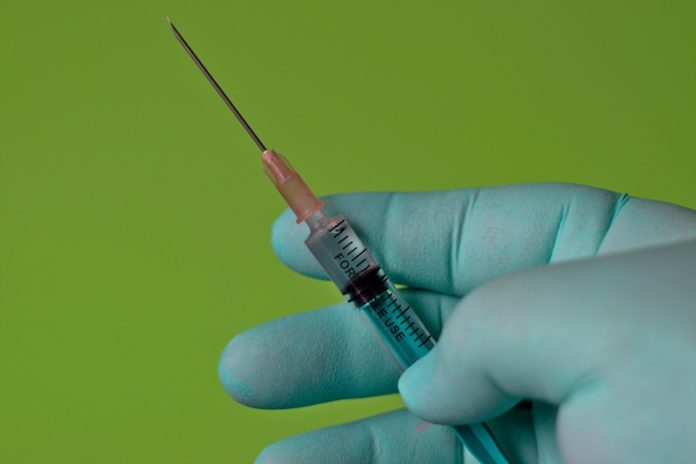Much like last winter when the Center for Disease Control and Prevention (CDC) was deciding who was going to be eligible for the COVID-19 vaccine, this fall they are addressing the question of who is eligible for the Pfizer vaccine booster. Their independent advisory committee has decided that only those most vulnerable to COVID-19 breakthrough will be eligible for the booster.
Already approved for those who are immunocompromised, the new ruling has expanded eligibility to those who are 65 and older, high-risk community occupants where there is significant density, those who have high-risk comorbidity, and those who are at increased risk for COVID-19 exposure due to occupational or institutional settings. Also, the ruling only applies to those who have had two doses of the Pfizer vaccine at least six months ago. No ruling has been made about either the Moderna or Johnson and Johnson vaccines. And mixing vaccine types is not advised.
The high-risk comorbidity group is defined as those who are 18 and older with underlying medical conditions including cancer, stroke, chronic kidney disease, chronic obstructive pulmonary disease (COPD), diabetes, heart conditions, obesity, pregnancy (with a doctor’s approval), and smokers, according to Dr. Kathleen Dooling of the CDC in an article on the CNN website and WJHL.
How Eligibility was Determined by the CDC Advisory Committee
As with all things related to the dissemination of the most up-to-date information on treatment and prevention of COVID-19, and the actions taken based on this information, there is some confusion about the application of this ruling. The Food and Drug Administration (FDA) had wanted to extend the decision to apply to workers whose jobs put them at a higher risk of breakthrough infection, such as health workers, teachers and those who work in grocery stores. However, the CDC chose not to address this group at this time. BUT the Tennessee Department of Health is now offering the Pfizer booster shot to those who are in occupations putting them at higher risk of infection as well as those noted by the CDC.
CDC Director Rochelle Walensky recently explained on Face the Nation that the advisory committee made the decision based on the best and most recent scientific data they have available with the goal of keeping the most people out of the hospital so that critical care does not have to be rationed. Currently, overwhelmed hospitals in the hardest hit areas of the country are having to do just that, so they can help a heart attack victim or car crash victim immediately.
With hospitals filling up due to the Delta variant to levels beyond what was seen last winter, the CDC’s advisory committee focused on the populations most likely to find themselves needing hospital care should there be a breakthrough in the vaccine’s protection.
According to an article on The Atlantic’s website, the CDC looked at the statistics by age group and by factors such as living density to see where the use of the booster shot is most likely to decrease the highest quantity of people from going to the hospital for critical care due to COVID-19. What they came up with was what they deemed the most vulnerable populations.
Living density is an important consideration because, as The Atlantic article explains, “A community where 10 percent of residents are unvaccinated seniors has essentially five times as many people who might need an ICU bed than a community where that number is only two percent…The more unvaccinated are concentrated, the more easily the virus can find its next victim.”
That Third Dose and Where to Get It
While Dr. Walensky said in the Face the Nation interview that 2.5 million people have already had their third dose, these new criteria will ensure more are to follow – both those who fit the CDC’s criteria and “Booster Bandits”, those who have gone looking for the booster and manipulated their way into getting one. Also, some organizations and medical offices are giving boosters to their staff and patients because they have it and do not want the vaccine to go to waste.
Beginning on Friday, September 24, the Tennessee Department of Health is offering Pfizer booster shots. To make an appointment, click here. To find locations where boosters are available in Middle Tennessee, click here for near Nashville, click here for Rutherford County, and here for Williamson County.
Boosters Are Not the Panacea
Dr. Helen Keipp Talbot, Assistant Professor of Medicine at Vanderbilt University Medical Center said in the CNN article, “A booster isn’t going to solve the pandemic…as it has become a pandemic of the unvaccinated.”
Although not a popular stance, the truth is laziness is the number one reason the pandemic is lasting so long according to recent research noted in The Atlantic article. There is significant evidence that masking, social distancing, hand washing, and staying away from large crowds, especially indoors, slow the spread. And of course, getting vaccinated. But patience with COVID-19 is waning, and over time there is less flexibility in adjusting to the ever-changing pandemic lifestyle. Streets, grocery stores, and restaurants are filled with unmasked people in spite of the CDC’s warning that even the fully vaccinated should wear a mask to prevent Delta variant spread.
The COVID-19 virus is constantly changing and mutating in the unvaccinated population. Some of these new strains are more deadly than others, like the Delta variant. “In a matter of weeks, the Delta variant upended the relative peace of America’s early summer and ushered in a new set of calculations about risk, masking, and testing. The pandemic’s endgame has shifted,” stated The Atlantic article.
In the same article, the writers explained that the COVID-19 vaccine is not the end-all-be-all that other vaccines – like polio and measles – have been. The article explained that “respiratory diseases are extremely tricky to immunize against”, and that flu vaccines are only ten to 60 percent effective. But they do keep people out of doctor’s offices, just as the COVID-19 vaccine keeps people out of the hospital.
Vaccinations, Breakthrough Cases, and Staying Vigilant
While 183 million people have been fully vaccinated for COVID-19, 280 million are eligible to receive the vaccination. Tennessee is one of the national “hot spots” where vaccination levels are low. The high concentration of unvaccinated makes the state an incubator of the disease.
The burden of the pandemic has now shifted to the unvaccinated, so the CDC, while wanting to ensure at risk populations receive the booster dose, are focusing their efforts in trying to get a higher percentage of the total population fully vaccinated. According to recent CDC research, breakthrough cases are at 0.08 percent of those who are fully vaccinated, showing once again that the vaccine does work.
While the science has changed as more information comes in about the disease, the basics have held firm since the end of last summer. In spite of COVID burn-out, if the population stays vigilant in their efforts to follow the CDC masking guidelines and get vaccinated, then some authorities – including Pfizer CEO Albert Bourla – believe that life could return to normal in a year.
Subscribe to our FREE Newsletter



























